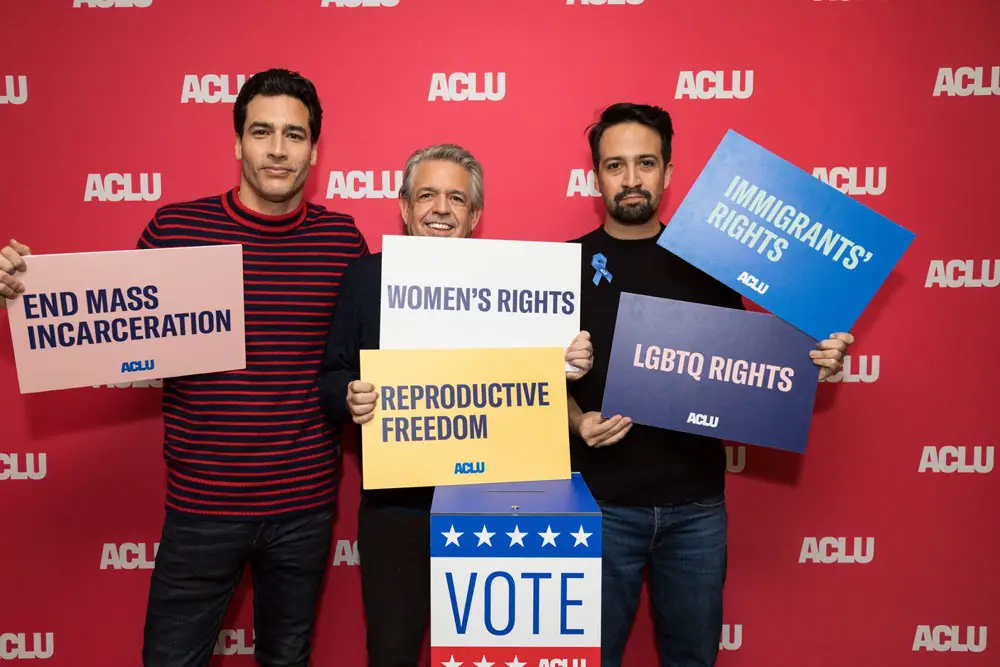
The American Civil Liberties Union (ACLU) is the nation’s guardian of liberty, working daily in courts, legislatures and communities to defend and preserve the individual rights and liberties guaranteed to all people in this country by the Constitution and laws of the United States.
This year marks the ACLU’s centennial.
In recognition, the Volusia/Flagler chapter of the ACLU is inviting high school students throughout the two counties to write an essay, up to 2,000 words, on the following subject:
“Since 1920, the American Civil Liberties Union has vigorously fought for fundamental freedoms. Looking back on our 100-year history, which of the ACLU’s landmark cases has had the most significant impact on protecting your individual rights and liberties as guaranteed by the Constitution and laws of the United States?”
There’s a lot to choose from: the ACLU has been involved in numerous cases protecting the separation of church and state, the right of school children not to salute the flag or say the Pledge of Allegiance, the right of Klansman to demonstrate in public, or–in a 1949 case–the rights of a priest to deliver a bigoted speech. It played a role in Brown v. Board of Education, the case that led to the end of segregated schools, it ended the practice of requiring veterans to sign loyalty oaths to qualify for property tax exemptions, led to the end of school-employee led prayer in public schools (“it is no part of the business of government to compose official prayers,” the Supreme Court ruled in 1962).
In 1963, a poor man from Florida, Clarence Earl Gideon, won the right for every person accused of a felony to be represented by court-appointed and paid-for counsel, with help from the ACLU. It was also involved in the case that made Miranda warnings part of the legal landscape after arrest, and in 1971 it helped overturn the conviction of an anti-war protester, who’d been arrested for wearing a shirt that said “Fuck the draft,” the same year that it was part of the fight to beat back the Nixon Administration’s attempt to stop The New York Times from publishing the Pentagon Papers.
The ACLU was also involved in Roe v. Wade, the case that needs no introduction, and in 1974 filed an amicus brief–the only amicus brief–in the case that led to a Supreme Court decision requiring Nixon to turn over the Watergate tapes of recorded conversations he’d had in the White House. “There is no proposition more dangerous to the health of a constitutional democracy than the notion that an elected head of state is above the law and beyond the reach of judicial review,” the ACLU argued. The cases have continued. (See a partial list here.)
In the Volusia/Flagler ACLU essay contest, four finalists will be selected from among the entries. Each will receive two complimentary tickets to the ACLU’s 2020 Annual Meeting and Banquet to be held at the Halifax River Yacht Club in Palm Coast at 6 p.m. on March 29. During the event, finalists will be recognized and the winner announced. The winner will be awarded a cash prize of $500, invited to read their essay aloud, and have their essay published in FlaglerLive, a sponsor of the prize. All essays received will be on display at the event.
The keynote speaker will be Cheryl Brown Henderson, whose father was a named Plaintiff in the Brown v. Board of Education case of 1954. Henderson will be joined by Micah Kubic, Executive Director of the Florida ACLU.
Please email essays with Subject of “Student Essay” to [email protected] by March 15.






























Cindy says
Oh boy. Here comes trouble.
Mike Cocchiola says
Thank you, Pierre!